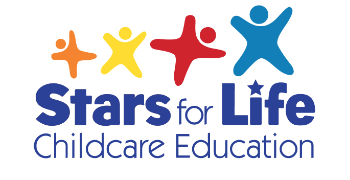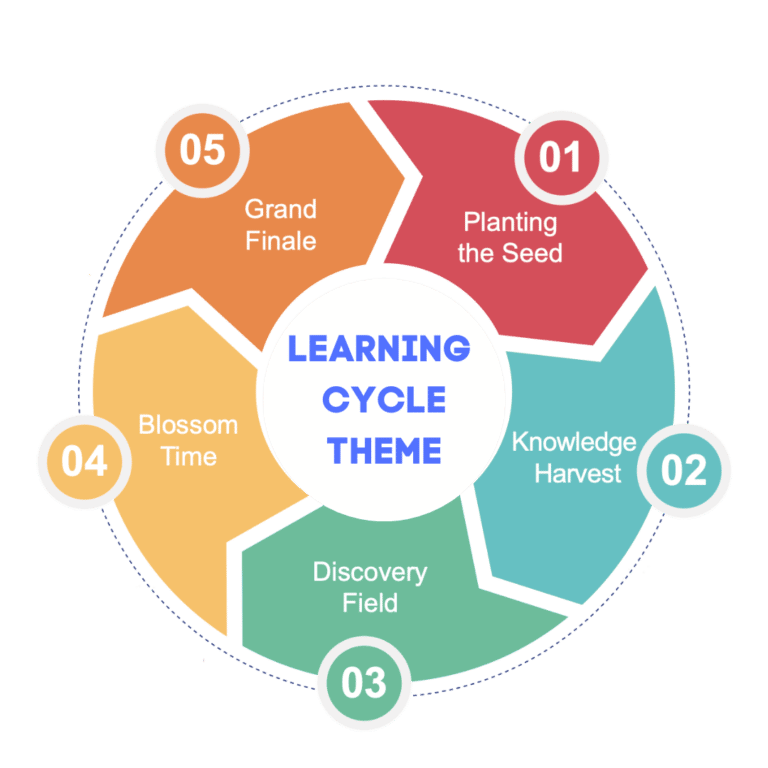Areas of Learning
Learning Cycles
The Learning Cycles are theme based and change every two to three months, incorporating best practices into our curriculum.
We believe that incorporating character education into the curriculum will create active citizens, lifelong learners, and loyal friends. Therefore, we work throughout the year with our six core values: respect, gratitude, kindness, curiosity, honesty, and knowledge.
Our biggest differential is our approach to the human being, with its singular needs, interests, and challenges, in a caring, supportive, and individualized form. This is where we ground ourselves, finding that our individualized approach is unique, therefore meaningful and special for each student that is enrolled in our program, since day one.
The Three Prime Areas of Learning Are :
The Three Prime Areas of Learning are particularly crucial for igniting children’s curiosity and enthusiasm for learning, and building their capacity to learn, form relationships and thrive.
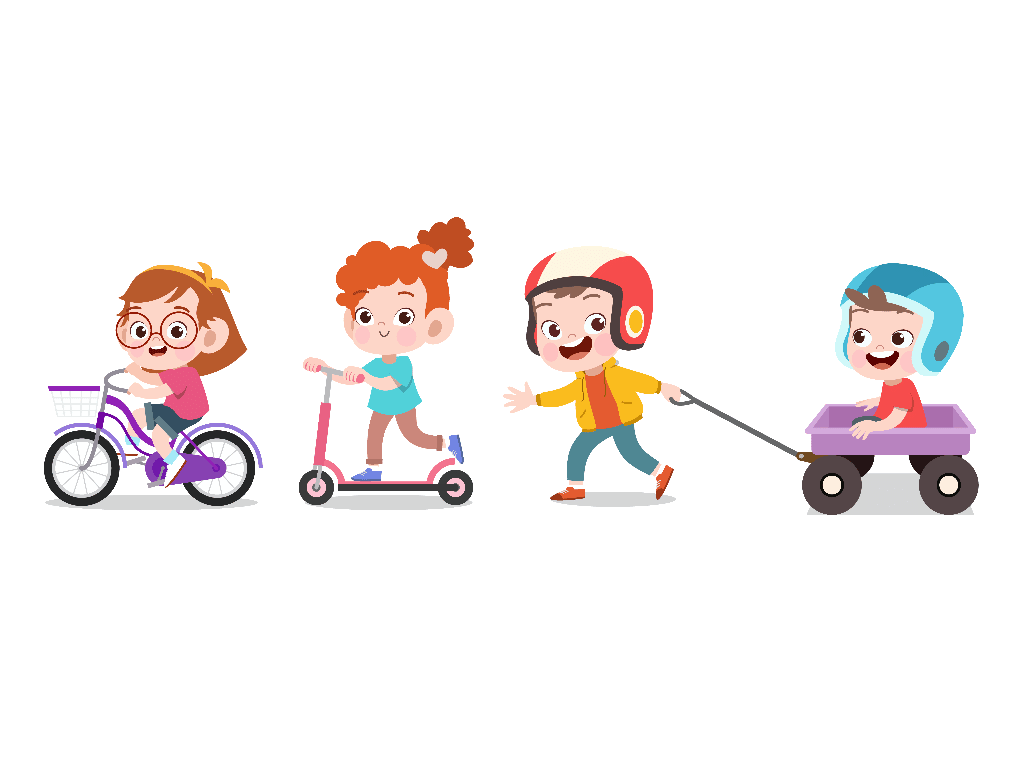
Physical Development
Both indoor and outdoor play are part of the daycare program.
The daycare child needs to develop fine muscle and large muscle control, movement coordination and dexterity. Music, climbing, balancing, and dance are some of the activities offered.
Activities that promote the development of self-help skills and Activities that encourage good health and safety habits.
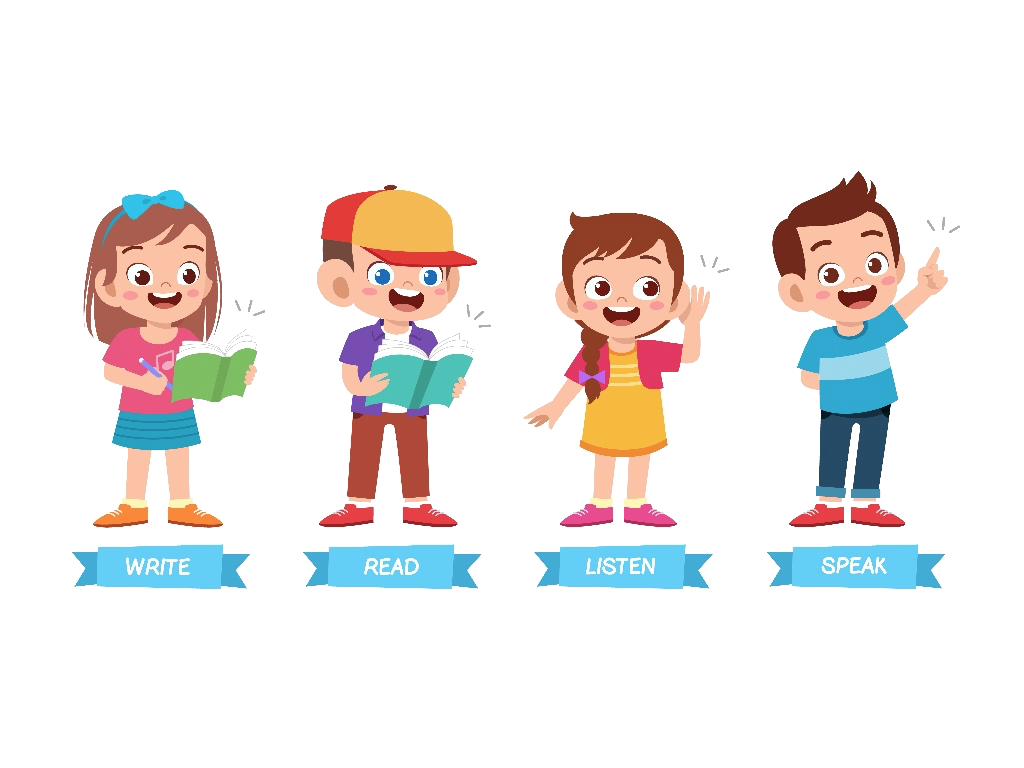
Communication and Language
Weekly interactions with adults and other children develop interpersonal communication.
Providing an environment for children to work independently and to share and to work cooperatively in small groups.
Helping children appreciate differences and respect personal feelings and property of others, while developing interpersonal communication.

Personal, social and emotional Development
Helping children develop a positive self-concept and an accurate perception of self.
Helping children express positive and negative feelings in appropriate ways.
Providing a comfortable atmosphere in which children feel proud of their cultural heritage and cultural sharing is encouraged.
The Four Specific Areas of Learning Are:
Early literacy skills, science, math, cooking and problem solving are some examples of the intellectual stimulation provided at Stars for Life Childcare Education.
Below are some practical examples of activities that are planned throughout each area of knowledge:
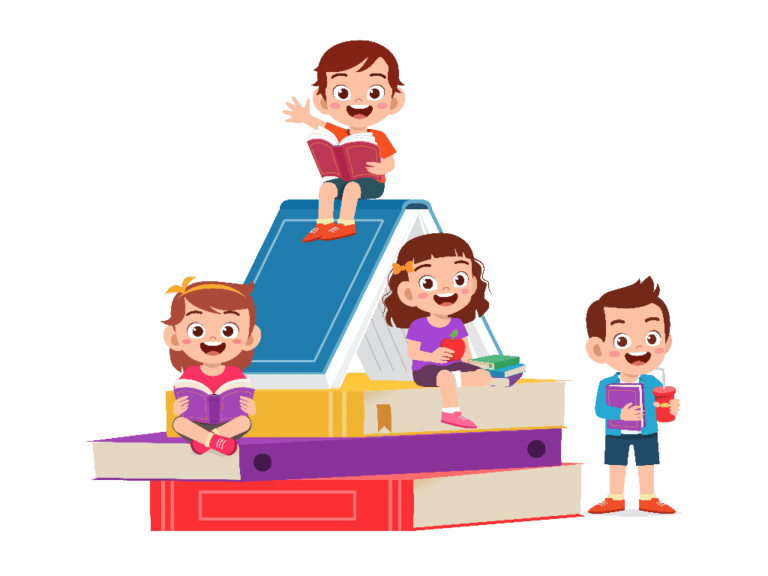
Literacy
- Listening to Stories, fairy tales, nursery rhymes;
- Retelling a story in their own words;
- Drawing a picture and explaining the story or experience;
- Answering questions about a story they were told;
- Repeating and memorizing nursery rhymes and fingerplays;
- Learning to hold a pencil, crayon, or marker correctly;
- Understanding the format of reading from left to right and holding a book right-side-up;
- Building their vocabulary by listening and repeating new words;
- Practicing visual discrimination by looking at a picture and understanding what it portrays;
- Matching games;
- Circle time with discussions and interactive activities;
- Recognizing their writing name;
- Sequencing practice about what comes first, next and last.
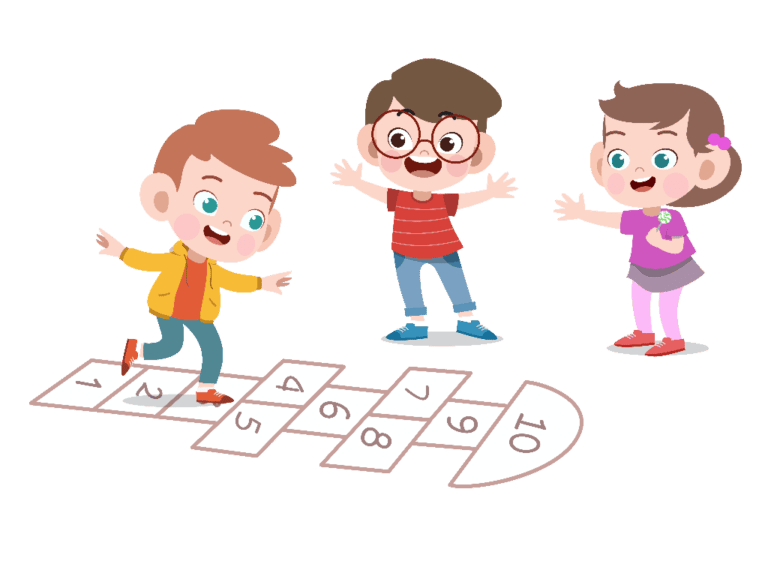
Mathematics
- Identifying and creating patterns (B, AABB, ABAB, etc.);
- Understanding sizes (small, medium, large, etc.);
- Specifying shapes (circle, triangle, rectangle, square, etc.);
- Matching various items (symbols, patterns, shapes, etc.);
- Determining things that are the same or different;
- Identifying numbers 1 to 10;
- Counting from 1 to 10;
- Corresponding objects one-to-one;
- Sorting objects by various attributes (colours, shapes, sizes, etc.);
- Understanding the terms “more”, “less” and “same”;
- Understanding time (night and day);
- Exploring money through songs, games, and free play or pretend play.
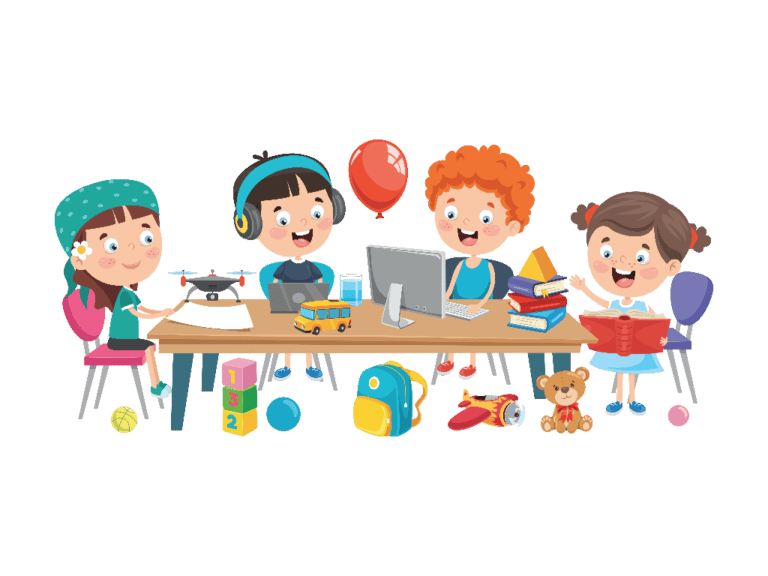
Understanding the world (Science, History and Geography)
- Looking outside and identifying the weather, season and daily changes throughout the year;
- Learning to observe nature quietly on nature walks or gardening experiences;
- Watching insects and seeing how they behave;
- Watching and plant grow, from planting the seed to watering and making a daily note or picture of how it changes;
- Explorations with scientific tools like magnets, microscopes, magnifying glasses, and prisms;
- Learning to measure and mix ingredients for a special snack time;
- Learning about basic colours and exploring mixing colours and marking how they change by drawing pictures;
- Exploring everything using all five senses;
- Field trips;
- Colour and shaping sorting;
- Science experiments;
- Cooking and food preparation;
- Gardening;
- Nature activities;
- Sequencing;
- Map drawing;
- Picking an animal to investigate and explore. Studying how they live, where they sleep, what kind of food they eat, and even how they groom themselves, as well as relationships with others of their kinds.
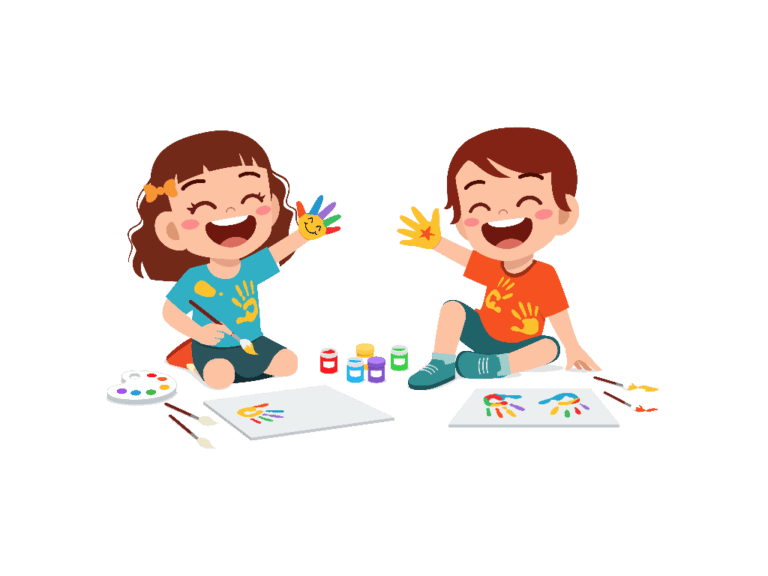
Expressive art and design (Art, music, design and Technology)
- Exploring various means of art, like drawing, painting, sculpting, weaving, collage, pottery, ceramics, woodwork, sewing, toy making, collages, ornaments, dot-to-dots, nature art, water art, origami, homemade jewellery, puppetry, felt art, and tape art;
- Using and exploring a variety of materials (crayons, watercolors, textured paint, pencils, markers, clay, chalk, charcoal, etc.);
- Mixing paint colours;
- Learning traditional songs and creating hand motions or dance movements to accompany them;
- Exploring and using musical instruments, like rhythms sticks, xylophones, and shakers;
- Finding other materials to practice rhythm and having a visual way to see it through scarves or bean bags;
- Creating a play with a simple storyline or recreating a familiar story;
- Continue to practice and develop fine motor skills by playing with clay, using scissors, writing with pencils and crayons, building with legos, etc.
